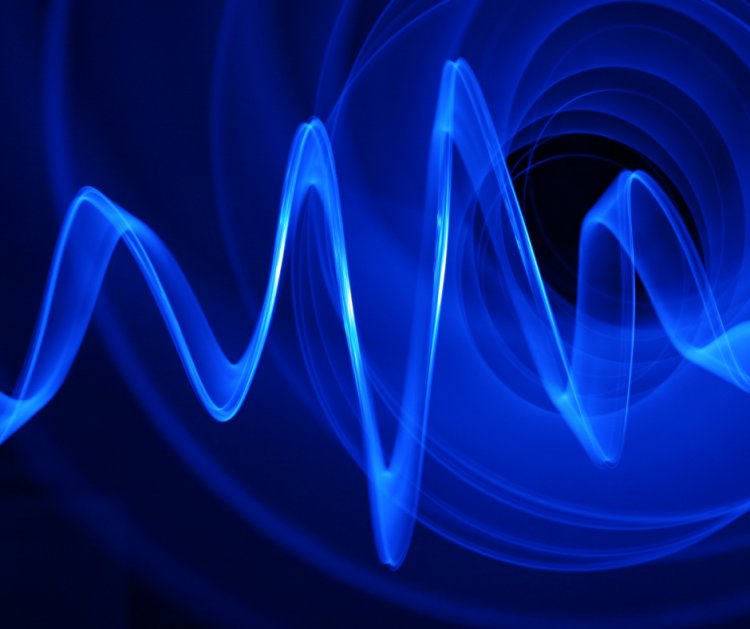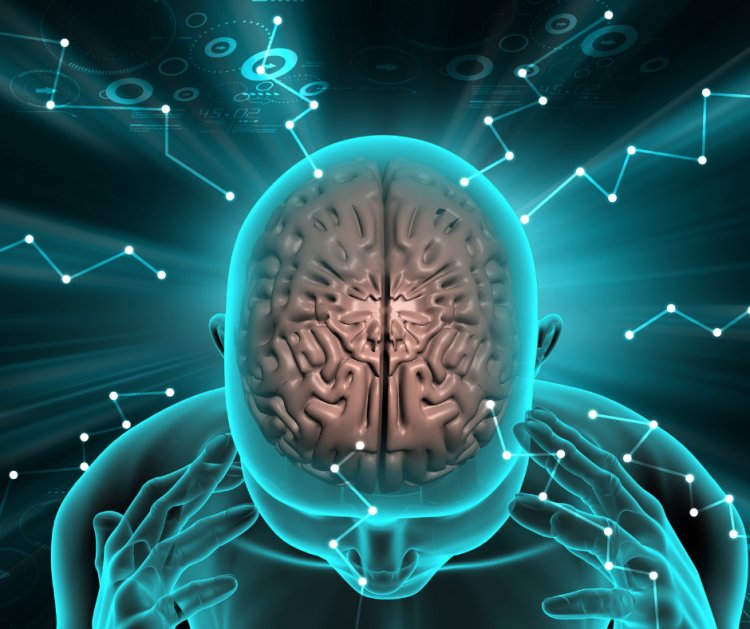Binaural Beats - Tool to Alter Brain Thought Pattern
With several human studies to back up the health claims, binaural beats seems to be a promising practise in the fight against anxiety, stress, and negative mental states. Becoming a master at meditation isn’t easy. Binaural beats won’t work for everyone, and they aren’t considered a cure for any condition. However, they offer a perfect escape for those interested in relaxing, sleeping more peacefully, or entering a meditative state.

The binaural beat is an auditory illusion envisioned by the human brain when you hear two tones at slightly different frequencies at the same time.
How Brain Interprets it?
Our brain interprets the two tones as a separate beat. The two tones work with the brain waves to create a rhythm at a different frequency.
This interpretation is subject to variation among different people based on their Date of Birth, Name and Psychology.
This frequency is the difference in Hertz (Hz) between the frequencies of the two tones.
For example, if you heard a 528 Hz tone with your left ear and a 532 Hz tone with your right ear, you would hear a 4 Hz tone.
When one listen to binaural beats, your brain activity is at the frequency set by the frequency of the heartbeat. This is known as the rate tracking effect. This means that you can use binaural beats to bring your mind to a certain state of mind.

Brain Waves That Affect Binaural Beats
The neurons in your brain use electrical signals to generate thoughts, emotions, and behaviors. When neurons synchronize, they create brain waves. Brain waves can be measured using a technique called electroencephalography (EEG). In this technique, electrodes are placed on the scalp to record the marking signals.
Brain waves can range from low frequency to high amplitude and from high frequency to low amplitude. Brain waves generate binaural beats. This leads to different mental states that affect the brain in different ways.
There are five different brain waves:
Delta: 1-4 Hz. Delta is the lowest frequency state, and it’s linked to:
- Deep & relaxing sleep
- Relief from pain & trauma
- Has a healing appeal
- Meditation
- Anti-aging: cortisol reduction/DHEA increase
- Access to the unconscious mind
Theta: 4-8 Hz. Theta binaural beats benefits include:
- Meditative practises
- Deep relaxation that soothes soul
- Creative expression
Alpha: 8-14 Hz. When you are in an alpha state of mind, your brain is focused and productive. Alpha brain waves help you to:
- Relax and focus
- Reduction in stress
- Diving into world of positive thinking
- Enhancement in learning capabilities
- Easily engage in activities and the environment because you are in a state of flow
Beta: 14-30 Hz. Beta is a higher frequency brainwave and helps in:
- Enhancing the focus
- Analytical & logical thinking
- Problem solving approach
- Energy stimulation
- High-level cognition
Gamma: 30-100 Hz. With a higher frequency than beta, these brain waves help in:
- Enhanced cognitive enhancement
- Attention to detail, helping in memory recall
- Out of box thinking which is quite often ahead of time
Benefits

Binaural beats are claimed to induce the same mental state as a meditation practice, but much faster. In fact, binaural beats are supposed to:
- reduce anxiety
- increase concentration and concentration
- reduce stress
- increase relaxation
- promote positive moods
- promote creativity
- relieve pain
Meditation is the practice of calm the mind and the amount of random thoughts that you run through. Regular meditation practice has been shown to reduce stress and anxiety, slow brain aging and memory loss, promote emotional health, and extend attention span. Practicing meditation regularly can be quite difficult, which is why people have turned to technology for help.
Binaural beats between 1 and 30 Hz are said to produce the same brain wave pattern that one would experience during meditation. When you hear a tone at a certain frequency, your brain waves are in sync with that frequency. The theory is that binaural beats can help create the frequency your brain needs to create the same waves that are normally experienced during a meditation practice. Using binaural beats in this way is sometimes called brain
Scientific Studies to Support Benefits
Most studies on the significance of binaural beats are having small sample size, however there are ample that provide evidence that this auditory illusion have health benefits, especially related to anxiety, mood, and performance.
One blinded study in 29 people found that listening to binaural beats in the beta range (16 and 24 Hz) was associated with both improved performance on a given task as well as a reduction in negative moods compared to listening to binaural beats in the theta and delta (1.5 and 4 Hz) range or to simple white noise.
Another controlled study Trusted Source in roughly 100 people about to undergo surgery also found that binaural beats were able to significantly reduce pre-operative anxiety compared to similar audio without the binaural tones and no audio at all. In the study, anxiety levels were cut in half for people who listened to the binaural beat audio.
Another uncontrolled study asked eight adults to listen to a binaural beat CD with delta (1 to 4 Hz) beat frequencies for 60 days straight. The participants filled out surveys before and after the 60-day period that asked questions about their mood and quality of life. The results of the study found that listening to binaural beats for 60 days significantly reduced anxiety and increased the overall quality of life of these participants. Since the study was small, uncontrolled, and relied on patient surveys to collect data, larger studies will be needed to confirm these effects.
One larger and more recent randomized and controlled trial Trusted Source looked at the use of binaural beats in 291 patients admitted to the emergency department at a hospital. The researchers observed significant decreases in anxiety levels in patients exposed to audio with embedded binaural beats compared to those who listened to audio without binaural beats or no audio at all (headphones only).
Risk Factors
Some studies have linked binaural beats to increased feelings of depression, however the results are not conducive. Some people who listened to binaural beats experienced short bursts of anxiety, anger, and confusion that lasted for a short time.
The brain responds differently for each person, and one must experiment and objectively select binaural beat that fine tunes with Date of Birth & Name
Take Away
With several human studies to back up the health claims, binaural beats seems to be a promising practise in the fight against anxiety, stress, and negative mental states. Becoming a master at meditation isn’t easy. Binaural beats won’t work for everyone, and they aren’t considered a cure for any condition. However, they offer a perfect escape for those interested in relaxing, sleeping more peacefully, or entering a meditative state.






























